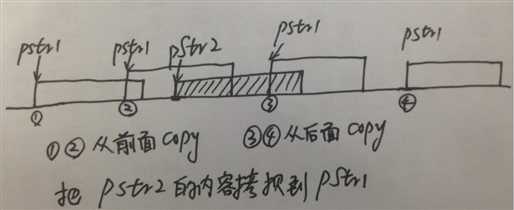标签:
pow(double base, int exp);
首先要写一些测试用例:
1.base=0时,exp<=0是不合法的输入。 2.base不等于0,exp<0时,要计算的值是base的|exp|次幂,然后取倒数。 3.base不等于0,exp>0时,直接计算base的|exp|次幂。
代码实现:
double myPow(double x, int n)
{
if(equalZero(x, 0.0) && n <= 0)
{
return 0.0;
}
int absExp = n;
if(n < 0)
{
absExp = -n;
}
double res = getPowWithAbsExp(x, absExp);
if(n < 0)
res = 1.0 / res;
return res;
}
double getPowWithAbsExp(double base, int absExp)
{
double result = 1.0;
for(int i = 0; i < absExp; ++i)
{
result *= base;
}
return result;
}
bool equalZero(double num1, double num2)
{
double delt = 0.0001;
if((num1 - num2 < delt) && (num1 - num2 > -delt))
{
return true;
}
else
{
return false;
}
}//equalZero()
但是这时新的问题来了,如果exp很大,那么这个样子的连乘,肯定需要很大的时间复杂度。这里利用到了归并排序的思想,把相同的小的子问题,配对计算,得出中等的问题,然后再把中等的问题配对计算,最后得到大的问题的解。这一点很像合并K个有序的链表中用到的方法。
所以新的getPowWithAbsExp函数可以这样写:
double getPowWithAbsExp(double base, int absExp)
{
double result = 0.0;
if(absExp == 0)
return 1.0;
if(absExp == 1)
return base;
result = getPowWithAbsExp(base, absExp / 2);
result *= result;
if(absExp % 2 != 0)
result *= base;
return result;
}
这样就通过归并的方法,大大的减少了计算乘法的次数。
在内存复制的时候,如果两段内存有重叠,那么就很容易产生覆盖。所以重写这个函数,对有重叠的内存的拷贝进行处理。
void* memmove(void* str1,const void* str2,int n)
{
char* pStr1 = (char*) str1;
const char* pStr2 = (const char*)str2;
if(pStr1 < pStr2) //从前面开始copy
{
for(int i=0; i!=n; ++i)
{
*(pStr1++) = *(pStr2++);
}
}
else //从后面开始copy
{
pStr1 += n-1;
pStr2 += n-1;
for(int i=0; i!=n; ++i)
{
*(pStr1--) = *(pStr2--);
}
}
return pStr1;
}
为了避免把还未copy的内存区域覆盖掉,这里用到的解决办法就是根据两块内存的位置,从前面或者后面进行内存copy。

标签:
原文地址:http://www.cnblogs.com/stemon/p/4665430.html